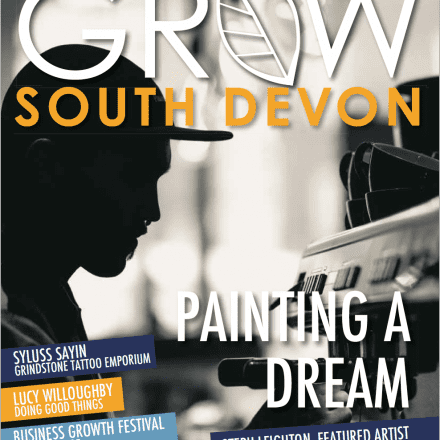Ollie Phillips - Living an Extraordinary Life

Written by Tracey Duke,
Ollie Phillips is one of life’s true adventurers; constantly challenging himself to grow and develop his skill set.
During the course of his 14 year professional rugby career, Ollie captained his country in three Seven’s World Cup tournaments and was voted the ‘Best Sevens Player in the World’ in 2009.
He also happens to be one of life’s true gems, knowing a thing or two about turning challenges into opportunities and on setting his heights high. I caught up with the man I’m proud to call a friend, in London’s Embankment.
Ollie, as always, let’s jump straight in and talk about your most recent adventure. You’ve just got back from completing a 3200-mile cycle race across the states; that was a huge challenge. How did it go?
So it was called RAM; Race Across America and yes it was 3200 miles but I did it as a relay with a group. So the way it works is that you and I would be a group of two. I’d cover 5 miles, cross wheels with you then you’d take off and blitz 5 miles. I’d then get back on the bus with the bike, go ahead and meet you 5 miles up the road ready to do the next set and we’d keep going like that; nonstop for 9 hours.
It’s tough, but that whole team buzz thing is keeping you going?
For sure! Obviously, you’re on your own when you’re cycling, but because it’s so short; a maximum of 15 - 20 minutes at a time, it’s ok to handle and you’re able to encourage your teammate on.
One of the interesting things, for my part, was that team dynamic. It actually ranks as one of the best things I’ve ever done.
Above the Wooden Spoon Arctic Challenge and all the others?
Yes and in the sense that you’re seeing the US across the whole of the country. You go from Oceanside on the West coast, all the way across to the East coast and you see how the US changes as you go through the different states; it’s just so cool. It’s an amazing country to cycle across.
So, Ollie, we’ve known each other for three or four years now and in that time alone, you’ve completed one challenge after another; sailing around the world, the North Pole expedition for the Wooden Spoon and RWC2015, a white collar boxing fight, a marathon in Sierra Leone, driving a rickshaw across India and then taking an MBA at Cambridge. That’s just so incredibly impressive! This buzz you get for adventure and challenging yourself, where does it come from? Is it the rugby background? Are you replacing something?
I think probably yes. I think it’s that need for achieving a goal; having a purpose. It’s just something to do and, for me, that comes in a big grand massive fundraising challenge. But for other people, it doesn’t have to be a ridiculous challenge. It can be just doing a 2k walk. It doesn’t make their challenge any less or mine any better.
Life gets pretty boring if it’s all just one pace. It’s quite nice sometimes just to step out of the status quo and do something different; test yourself, see how far you can go. Prove that you can do it. My professional sporting background obviously fuels that a lot; every week we were challenged to try and beat ‘x’ team, whoever that was.
The question was always, ‘how do we do that?’ On paper, they’re bigger, stronger, faster than us. They’ve got a better form than us. Or it was ‘we’re the better side, we should definitely beat them’. It was a different challenge every time; exaggerated, enormously, by playing in front of a massive crowd.
I think the challenges are a part of that; a replacement for the sport. But I love doing stuff with big groups of people. I’m not one who can do it on my own.
That’s because you’ve got that team mentality behind you.
That and, to be honest, I don’t really have a death wish! I think that all of my greatest memories are with other people; whether that’s sitting down over dinner, over a drink or trekking to the pole. It’d be pretty boring if I did that on my own. It’s not quite the same ringing someone up to say ‘I’m just ringing to tell you about the time I did such and such on my own’.
I admire and respect, enormously, those incredible individuals who can just be on their own for month after month and overcome a challenge, but that’s not what motivates me.
For some, the goal is doing it on their own. It’s much more challenging for them than having people around them to help get them through. For me, it’s not about how high I can climb or how fast I can go; it’s about the collective. I just enjoy that collective challenge of knowing that all these different people have got all kinds of hopes, aspirations, and goals and making sure that everybody gets something out of it and that everyone wins.
Usually, there’s a charity and philanthropic angle to it.
You’ve done so much for charities and fundraising.
I have and some people have been incredibly generous through all of this. We’ve raised about £1.9 million, for four different charities. The challenges aren’t always about the fundraising, but for me, I feel that if you’re doing something and there’s an opportunity to help other people, then you should do it. The way that I go about doing that is possibly the most trivial way, which is raising money and handing it over.
But I’m also aware that the one thing these people need is love and time. I don’t always have that to give, but one of the things I can do is make sure we raise as much money as possible to help them; whether that’s for cancer or Alzheimer’s.
I know that’s a big passion of yours and that it’s close to your heart.
It’s a major drive for me. If I’m honest, I think you have a moral obligation to, and we used to talk about this in sport and at Cambridge, ‘leave the jersey in a better place than when you arrive’.
If you break that down into smaller chunks; day to day and hour by hour, you can ask ‘have I left things in a better place today?’ That can be related to relationships, planting trees, fighting cancer, whatever that may be.
It’s doing your bit to make a positive difference.
Exactly! We’re not here for very long and we have a moral obligation to set it up for generations to come, so they enjoy the things we’ve done. You definitely don’t want to leave it in a worse place or eventually it will all deteriorate.
I think we’re seeing mother nature kick back at the moment. She’s pretty pissed off! It’s probably cause and effect of some people, in the past, not leaving things in a better place and we have to change that.
I completely agree with you. Ok, so let’s talk challenges. What’s the biggest personal or business challenge that you’ve faced? That point where you questioned whether you could do it. And if you were at that point, how did you get through it?
PwC is my biggest challenge to date. This is definitely my hardest one to date. All the other ones, don’t get me wrong, were hard; mentally and psychologically I had to keep my legs churning but, strategically, they were a lot easier. All I had to do, was get from point A to point B, dig in deep and drag everyone else with me.
So these were in your sporting adventures, where maybe you felt more in control; more of a leader?
Yes. And also because I had a very strong foundation from which to build from. I was always, if not the fittest, one of the fittest. But obviously, coming in here to PwC, that doesn’t really count for anything. Just because you can bench press and run x amount of miles; it doesn’t really mean anything.
That was one of the things I talked to James Caan about; the transition of professional athletes into the corporate world and the qualities and strengths that athletes bring to the business world.
Passion, drive, determination; all of those attributes are definitely there, but you also have to be motivated by your work. I think that that’s the most important thing, whoever you are.
So if you’re in the army or playing for England, it’s pretty much a given that you’ll love your job. Coming then into the corporate world, at the age of 30 or whatever, is different; very very different. You have the attributes yes, but until you get passionate about the subject, take some interest, learn the ropes and develop an understanding of the game, it’s very difficult to transfer the skills and that needs a lot of work. Especially as players are moving into the game at such an early age.
When you’re coming in so early, you really don’t know anything else. You’ve not developed a passion or an interest in anything else. That absolutely needs to be addressed and thought about earlier on in a player’s career.
Managers and business leaders also need to recognise that whilst they’ve got very determined, driven people, they need to spend some time ensuring they really are interested and understand what they’re coming into. It’s not going to be a passion point immediately, but the role has something that can really grab their attention. Otherwise, they’re just going to wander around feeling lost.
So how are you feeling now since your transition? Have you found your feet?
My first year was a tough one. It was tough understanding what my role was within this huge corporate organisation. And that was one of the hardest things for me to accept at the start; this huge business of 275,000 people across the globe. It’s a massive network of people.
Weirdly enough, what we used to say in the England team, is you have to get comfortable with being uncomfortable; that definitely resonates with me at the moment.
Because you’re feeling out of your comfort zone now?
Absolutely! Every step is essentially new territory because I’ve never been there before. Obviously, over time, you might see the same issues, but initially, every day is new; different. It’s uncharted waters and you’re trying to make sense of it as you go.
And so actually isn’t that just like life anyway? Are we not trying to make sense of it most days?
Yeah, you’re right; it is. I mean if I liken it to the adventures; in the North Pole, every step I took was unknown. I never knew whether the ice was going to fall through. I had a relatively decent idea that it wouldn’t, but you never knew for certain.
Whilst I wasn’t an experienced explorer, I think the reason I had confidence was that I had the basics, from which to build, in place. I knew I was strong enough, fit enough. I knew how to swim if I dropped through the water. I knew I had ten people around me and I knew that if someone fell in I was strong enough to pull them out. So I had that confidence to know that I could answer a question that might be thrown at me.
But then, and you know this more than anyone, the further you go and the more situations you find yourself in, the more reference points you’ll gather; it’s all just a series of building up reference points or experience.
But coming into it cold, like all the pro players will do, takes time and unfortunately, as a pro athlete, you habitually get used to the fact that you don’t have time. You play Saturday, you have to win, but if you don’t win you have four days to put it right. And it’s cyclical; you have to right that wrong and you don’t have the luxury of time because if you don’t perform well enough, you’re relegated at the end of the year. And it’s the same in business. If you don’t perform, you go bust.
Life is all about turning challenges into opportunities. The reason why PwC is my biggest challenge is that it’s constantly pushing me to do things that I typically wouldn’t be doing. All the other ones were tough, and they definitely asked me to improve, but I had a very solid strong foundation in place. So cycling across America, for example, I’m pretty fit & I’m pretty strong; I wasn’t someone who hadn’t cycled in 20 years. If I liken that to PwC, I’d never been on a bike, never even knew how to push the pedals. It’s definitely, a challenge.
And the biggest lesson you’ve learned through all of this?
A lot of this stuff is common sense, but it’s not very common practice. The biggest thing I’ve learned is that your strength is in the collective.
You’ve always got to be honest; honesty and integrity is always the best way. Don’t compromise your values on things; people will always appreciate your honesty. Be honest and if you don’t know, say you’ll find someone who does. More often than not, if you help people get from A to B, then they’ll be thankful for that.
There was an element of learning for me too in that I can’t do everything; I need to delegate. I always used to do everything; constantly trying to do everything, but I wasn’t qualified or skilled to do everything and the result ends up being a poor delivery.
It’s a bit like rugby actually; everybody working together to eventually put everyone in to score. If you ask the 15 players who would like to score, everyone would put their hand up. But there’s an appreciation and recognition that you all have to do a certain job for a certain role and eventually, someone will dot it over the line.
I think that the beauty of the game, of life, is that people move for different reasons and the key for any manager is to understand those reasons and drivers.









